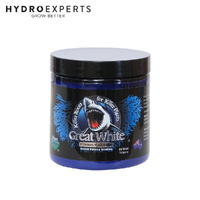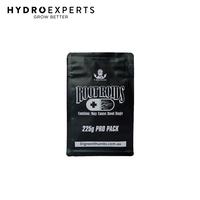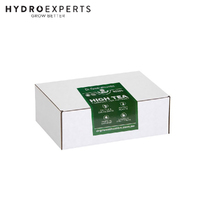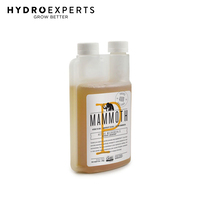Organic Gardening Solutions P-Solubalizing Bacteria - 100ML
IN STOCK
FREE SHIPPING OVER $499*
Pick up at store Free
Delivery Options:
If cart total is less than $499*
Freight applies
If cart total is $499* & above
Free
*excluding bulky items
International shipping
Click hereSECURE PAYMENTS WITH

BUY NOW, PAY LATER
Pay in 4, interest-free. Afterpay it.

ZIP NOW, PAY LATER
Repay on a convenient weekly, fortnightly or monthly schedule.

ENJOY NOW, PAY LATER





Our Phosphorus solubilizing bacteria is a concentrated mixture of two powerhouse microbe strains that not only solubilize phosphorus, but also have a wide range of other beneficial actions. Both of the microbes used in this product appear in several other of our products, however it is in this concentrated form that they are truly effective at solubilizing minerals.
Azobacter (Vinelandii) - has been shown to not only have P-Solubalizing effects within soil, but also Nitrogen solubilziing. Azobacter has the ability to solubilize both organic and inorganic forms of phosphorus. It has the ability to handle a wider range of temperatures, salt concentrations and pH's than most microbes allowing their populations to thrive in all conditions while acting as a biofertilizer.
Bacillus (Substillis) - is a thermotolerant (<50°C) strain associated with the solubalization of tricalcium phosphate to plant available (soluble) phosphorus. Substillis's effects extend even further by not only increasing P solubility, but also the activity of phosphatase in the rhizosphere generally - meaning all microbes are more efficiently able to uptake phosphorus. This makes Substillis the ideal companion microbe for both Azobacter, as well as all microbes in your soil.
Features
Benefits:
- Promoted root growth.
- Increased yield and quality.
- Faster release of rock phosphate.
- Increased brix levels.
- No withholding period, apply at any time up until harvest.
Specifications
Components:
- Dehydrated Coconut Water - Coconut powder brings to the mix an abundance of cytokinins and auxins which are essential hormones that work together to regulate apical growth and root growth, promote cytokinesis (cell division), and have been shown to slow down senescence by preventing the breakdown of proteins. Also present are amino acids, macro-nutrients, micro-nutrients and other auxin analogues to assist in seed development and flower development, and several mono- and polysaccharides which promote microbial growth.
- Dehydrated Aloe Vera - Aloe Vera powder is rich in Salicylic Acid, which plays a role in plant growth, photosynthesis, ion uptake and transport, as well as in the resistance to pathogens through the production of pathogenesis-related proteins.
- Humic & Fulvic Acid - Humic and Fulvic acids are organic polymers which co-ordinate and chelate macro-molecules/metals, and assist in facilitating their uptake. They also act to neutralise soil pH, allowing trace elements once bound in the soil to become available to the plant. Fulvic acids have an oxygen content over twice that of humic acids and as such are much more chemically reactive, with an exchange capacity more than double that of humic acids. Because of their small size, fulvic acid molecules can enter plant roots, stems and leaves, carrying trace minerals from plant surfaces into plant tissues. When humic and fulvic acids are applied to soil, increased root growth rates are observed.
- Kelp Meal (soluble) - Kelp Meal is high in K, and is a source of trace minerals, amino acids, plant micro-nutrients and natural plant hormones.
- Azomite (soluble) - Azomite is a trace element source, conditioning agent and helps plants better absorb nutrients from soil. The rare earth elements present in Azomite enhance nitrogen fixation by Azotobacter species, which bind atmospheric nitrogen and release it as ammonium ions into the soil. Furthermore, the Azomite present in our 'SuperSoil' acts to reduce stress caused by drought by enhancing Abscisic acid (ABA) production, in turn minimizing the water lost by a plant in transpiration.
In The Box
- [1] x Organic Gardening Solutions P-Solubalizing Bacteria
- Use at a rate of 1ml per 2L from seedling stages onwards

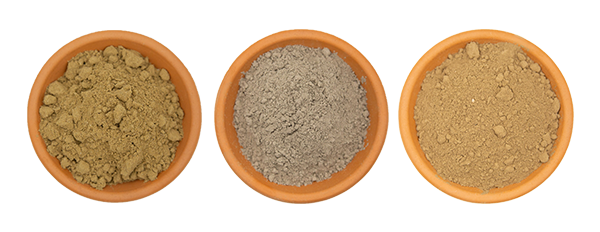





 Calculate shipping
Calculate shipping



